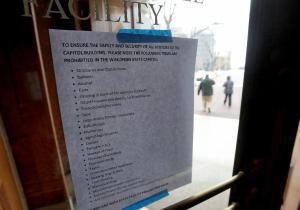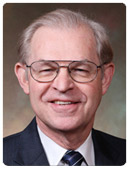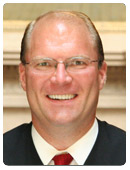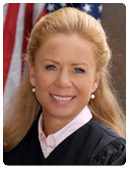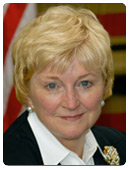Now that Wisconsin Governor Scott Walker has abandoned his presidential bid, he and a network of powerful conservative allies with close ties to the Koch Brothers are exacting what critics say is blatant political vengeance on his in-state critics, by targeting the laws that have effectively deterred or punished political corruption.
Last week, Wisconsin’s Republican-controlled Assembly passed three bills that together would completely gut existing campaign-finance laws, blunt prosecutors’ ability to investigate political corruption, and turn the state’s elections and ethics board into a partisan-controlled paper tiger. Two of the bills are now before the Republican-controlled Senate, while the third has already been signed by Walker.
Good-government advocates can’t seem to overstate the impact these bills could have on a state that’s long been a beacon of government transparency and strong campaign-finance laws. “I think the implications, long-term, could be even more horrendous than [Act 10—the bill that gutted state workers’ collective bargaining rights],” says Peter Barca, a long-time Wisconsin politician and current Democratic state assembly member, calling the past week the worst he’s experienced in any legislative body.
Advocates for open government fear the changes may be too “inside baseball” to rouse public anger—at least until scandals beset state government. “It’s a recipe for political corruption. Even worse, the public won’t know about it,” says Brendan Fischer, general counsel at the Center for Media and Democracy. “There’s unlimited opportunities for corruption as a result for these bills and limited opportunities for the public to keep tabs.”
“It’s very strategic and very shrewd,” says Jay Heck, executive director of Common Cause Wisconsin. “Ever since Act 10, there’s been this synergy between the Koch Brothers and Americans for Prosperity with the legislative Republicans and Scott Walker. It’s part of the broader agenda—one they know is an agenda that doesn’t resonate with any people’s lives. They want to get away with it quickly.”
The legislative push is an attempt by Republicans to codify a controversial Wisconsin State Supreme Court decision, which involved an investigation into Scott Walker’s 2012 campaign to oppose an effort to recall him.
The legislative push is an attempt by Republicans to codify a controversial Wisconsin State Supreme Court decision, which involved an investigation into Scott Walker’s 2012 campaign to oppose an effort to recall him. The ongoing investigation into allegations of illegal coordination between Walker’s 2012 campaign and outside conservative advocacy groups was abruptly halted this July—at the apogee of Walker’s presidential campaign—by the court. The justices ruled not only that the instances of coordination were legal, but also that all evidence in the case was to be destroyed. It’s worth noting that justices who signed on to the decision were elected with millions in spending from the same outside groups that were at the heart of the case. Court critics had demanded that at least two conservative justices who had received campaign support from groups like the Wisconsin Club for Growth (suspected of illegal coordination with Walker) recuse themselves. They didn’t—and voted to stop the investigation.
So what exactly is in these pieces of legislation? While they are three separate laws, together they could create a less accountable, less transparent, and more corruptible state government.
Breaking Up a “Gold Standard”
Unlike the Federal Elections Commission and many state agencies, Wisconsin’s Government Accountability Board (GAB) is a nonpartisan body made up of six appointed retired judges charged with enforcing the state’s ethics, lobbying, campaign-finance, and election law.
The board was formed in 2007 with bipartisan support after nine Wisconsin legislators and staffers—Democrat and Republican alike—were found guilty of using taxpayer funds for political campaigns. The state assembly speaker was sentenced to 15 months in prison.
In election law circles, the system is held up as a gold standard for ensuring integrity in the political process—especially because of the independent funding mechanism for corruption investigations, which works as a firewall from political agendas.
Critics think Republicans are targeting the GAB partly because it authorized the probing form of investigation known as “John Doe” into Walker and his staffers. Republicans—echoed by a succession of conservative editorials from The Wall Street Journal—have sought to cast the board as a partner to the prosecutors who went on a “political witch hunt” of Republicans. They contended that the investigation was based on a false interpretation of campaign coordination law.
The bill to repeal the GAB would replace the retired judges with partisan appointees, create separate entities for ethics and elections, and give the legislature the authority to cut off investigative funding if it sees fit.
Republican Assembly Member Joe Sanfelippo penned an op-ed last month saying that the GAB should operate more like the FEC. “If it works for the Federal Election Commission, there’s no reason it won’t for Wisconsin as well,” he wrote. The problem is that it doesn’t work for the FEC. The commission’s chairperson has said that due to crippling partisan gridlock (by law, it has three Democratic and three Republican commissioners), the FEC can’t enforce federal campaign-finance laws. As the Campaign Legal Center’s Larry Noble told the Wisconsin State Journal, "It's like setting up a disaster-relief agency and saying you're going to use the FEMA handling of Hurricane Katrina as your model."
According to Common Cause’s Heck, some Republican state senators who helped implement the GAB back in 2007 and who are still in office are reportedly pushing to allow retired judges to stay on the board. Their numbers are small, however, and it remains to be seen if they will be enough to force an amendment.
Welcoming Unlimited Dark Money
In one of the most expansive deregulations of existing campaign-finance law, the state assembly also passed a bill Wednesday that guts existing regulations, ushers in an even larger windfall of dark money than Citizens United, and removes certain campaign coordination rules that previously served as a firewall between candidate and super-PAC campaigns.
The bill would create a loophole for political groups to skirt traditional disclosure regulations of “express advocacy,” so long as more than 50 percent of total spending doesn’t go to such activity. Experts say that the loophole, which would be one of the most lax in the country, would allow groups to flood the airwaves with un-attributable attack ads. And with this bill, campaigns and “issue advocacy” groups are free to work together.
Advertisement

As Fischer explains, under the bill the Assembly passed, a campaign could set up a shadow campaign committee that could take donations from corporations, foreigners, and those trying to avoid public scrutiny without having to disclose who is contributing. All the while, the official campaign and shadow group could legally coordinate on campaign strategy.
Additionally, the bill removes the requirement that direct contributors to candidates specify their employer, which helps illuminate which industries are supporting which politicians. Unlimited contributions to political parties and legislative leaders would be allowed, as well.
John Doe No More
Rather than using a grand jury system, since statehood, Wisconsin has used a “John Doe” investigation process, which allows prosecutors to covertly investigate wrongdoing by questioning unnamed suspects before a judge. The process was used to bring down politicians for corruption back in 2006, as well as for the campaign coordination investigation into Scott Walker. “John Doe” has been in Republicans’ political crosshairs since the Walker investigation and they have long been working to portray it as purely a means for partisan attacks—despite the fact that Republican prosecutors were leading the investigation into Walker’s campaign.
This bill has passed both the assembly and senate and was signed into law by Walker on Friday, effectively ending “John Doe” political corruption investigations in the state.
Taken together, these three bills mark a wholesale dismantling of good-government policies, likely turning Wisconsin into a political Wild West. If all are enacted, outside groups would be able to dump untraceable money into elections. The campaign-finance laws that remain on the books would be lightly enforced, if at all, as the new agencies become mired in FEC-style partisan gridlock. The ability to effectively investigate instances of corruption would be curtailed—with the legislature vested with the power to cut off the funding for such investigations.
The Koch Connection
The spate of anti-reform legislation comes at a moment of electoral peril for the state’s Republican Party. “Walker has never been weaker and the fractures between the two (Republican-controlled) houses are more pronounced than ever,” says Common Cause’s Jay Heck. “This is sort of a last attempt to tie all the factions together.”
Walker’s lackluster candidacy for president appears to have hurt his support back home. A recent survey puts his disapproval rating at 60 percent, 10 percentage points higher than when he pushed through Act 10 in 2011. But, as last week’s legislative victories showed, he can still rely on the Republican legislature and his loyal band of conservative groups to offer up support—particularly when that support gives the GOP’s big-money backers more sway in state elections.
Indeed, those big-money backers are the prime movers of these measures. As the Center for Media and Democracy’s Fischer has thoroughly documented, these government “deforms” are central to the agenda of the Koch Brothers and their deeply entrenched Wisconsin political infrastructure. The only group that was lobbying in support of the disintegration of the state’s Government Accountability Board was the brothers’ Americans for Prosperity (AFP), which also spent $10 million in support of Scott Walker during his recall election.
Similarly, the sole lobbying proponent of the push for new campaign-finance deregulation is Wisconsin Right to Life, which is run by a former AFP state operative. In a statement to the Prospect, the group said “We are glad the Wisconsin State Legislature is addressing the fact that Chp. 11, our state's current campaign finance law, is unconstitutional as it stands."
Along with AFP, Wisconsin Family Action, a group that seeks to advance “Judeo-Christian values in Wisconsin by strengthening, preserving and promoting marriage, family, life and liberty,” and was implicated in the recent John Doe investigation, lobbied to do away with that very prosecution tool. Intertwined with these organizations is the Wisconsin Alliance for Reform, a recently formed group that has been running radio spots backing the legislation, and has clear ties to AFP, ALEC, and prominent conservative state politicians.
Political Blowback?
Will this brazen agenda of political “deform” lead to the kind of public pushback that arose in opposition to Act 10? Deregulating campaign finance and breaking up the GAB are hardly policy priorities for the average Wisconsin voter. In fact, there’s plenty of evidence to show that Wisconsinites—and Americans more broadly—want to get money out of politics. In Wisconsin, 61 cities and counties, representing 42 percent of state residents, have passed resolutions in support of overturning Citizens United. Across the country, 84 percent of Americans think money has too much influence in politics and 75 percent believe there needs to be fundamental changes to the campaign-finance system.
Good-government advocates were heartened a few weeks ago, when there was substantial public rancor after Scott Walker and State Assembly Speaker Robin Vos attempted to include a last-minute provision in the budget bill that would have gutted the state’s open records law.
“A lot of work needs to be done to educate voters about what [this new legislation] actually does,” says Fischer. “There’s a lot of misinformation coming from supporters. But as the public grows more aware about what this bill actually does in promoting secrecy, they will grow outraged.”
However, there’s little opportunity to challenge these laws. Experts don’t see much room to stage a legal challenge in the courts and a ballot measure to repeal the laws would first have to be approved by the legislature. Both the state’s 2010 redistricting and the impending flow of more secret money make a Democratic takeover of either chamber in 2016 highly unlikely.
Strategically, this legislation works to help entrench Republican power in a competitive state, and will likely leave state Democrats looking beyond the next redistricting, rather than to 2016, for a new political opening.






